I added a destructor to some code and it seems to be calling early and causing problems. I added a debug statement to see where it is being called and that made me even more confused. I understand that managing my own memory is not best practice but I wanted to try it out myself.
This is basically my GameObject class:
class GameObject
{
public:
int xCoord = 0, yCoord = 0, prevX, prevY;
int status = 0, weight = -1;
int id = -1;
GameObject(CommandComponent* commands,
PhysicsComponent* physics,
GraphicsComponent* graphics)
: commandComponent(commands),
physicsComponent(physics),
graphicsComponent(graphics)
{};
~GameObject()
{
std::cout << "Destructor called " << id << std::endl;
delete commandComponent;
delete physicsComponent;
delete graphicsComponent;
};
void update(World& world, int command, sf::Time dt)
{
commandComponent->update(*this, world, command);
physicsComponent->update(*this, world);
graphicsComponent->update(*this, dt);
};
void update(World& world, int command)
{
commandComponent->update(*this, world, command);
physicsComponent->update(*this, world);
};
sf::Sprite draw()
{
return *(graphicsComponent->draw());
};
void setCoords(int x, int y)
{
prevX = xCoord;
xCoord = x;
prevY = yCoord;
yCoord = y;
};
void setId(int newId)
{
id = newId;
}
private:
CommandComponent* commandComponent = NULL;
GraphicsComponent* graphicsComponent = NULL;
PhysicsComponent* physicsComponent = NULL;
};
This is the createPlayer Method:
GameObject* createPlayer(sf::Texture* text)
{
return new GameObject(new PlayerCommandComponent(), new PlayerPhysicsComponent(), new PlayerGraphicsComponent(text));
};
This is a method I invoke to add the new object to a vector based on if it is an active object or an inactive one I also add it to an array :
void World::addObject(GameObject object, int id, int type){
object.setId(id);
if (type == 0)
{
inactiveObjects.push_back(object);
}
else if (type == 1)
{
activeObjects.push_back(object);
}
}
Finally this is my test code that creates the Game Objects and calls the above function and where I see the destructors being called from:
void World::test()
{
// Player
std::cout << "Starting to create id 0\n";
addObject((*createPlayer(&(mTextures.get(Textures::PlayerCharacter)))), 0, 1);
activeObjects.at(0).setCoords(3, 3);
activeObjects.at(0).weight = 10;
std::cout << "Created id 0\n";
// Test Objects
std::cout << "Starting to create id 1\n";
addObject((*createPlayer(&(mTextures.get(Textures::PlayerCharacter)))), 1, 1);
activeObjects.at(1).setCoords(3, 4);
activeObjects.at(1).weight = 7;
std::cout << "Created id 1\n";
addObject((*createPlayer(&(mTextures.get(Textures::PlayerCharacter)))), 2, 1);
activeObjects.at(2).setCoords(5, 4);
activeObjects.at(2).weight = 2;
addObject((*createPlayer(&(mTextures.get(Textures::Enemy)))), 3, 1);
activeObjects.at(3).setCoords(6, 6);
activeObjects.at(3).weight = -1;
addObject((*createPlayer(&(mTextures.get(Textures::Enemy)))), 4, 1);
activeObjects.at(4).setCoords(1, 1);
activeObjects.at(4).weight = 0;
std::cout << "Done Creating Test Objects\n";
I guess my main question is how come the Destructors are being called? Im assuming its related to how I'm constructing the object in the createPlayer method, Perhaps it's going out of scope after I return it but I thought using the new keyword would prevent that from happening? I'm puzzled here.
